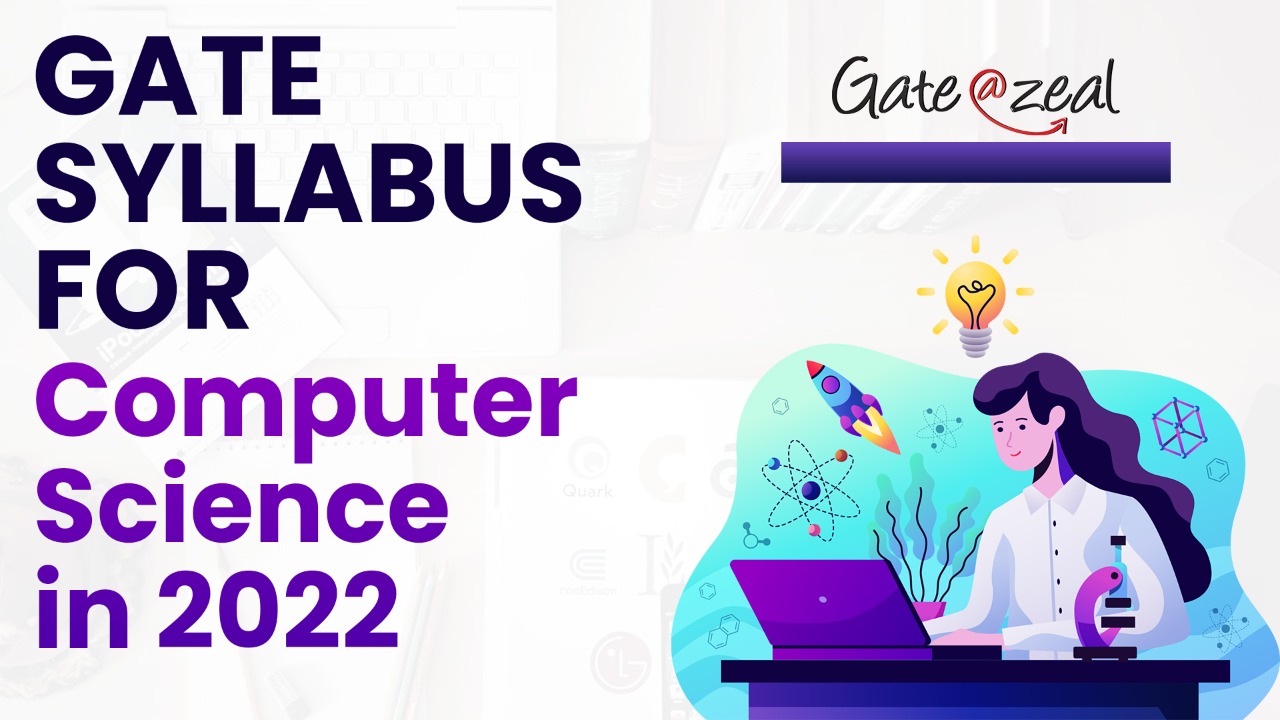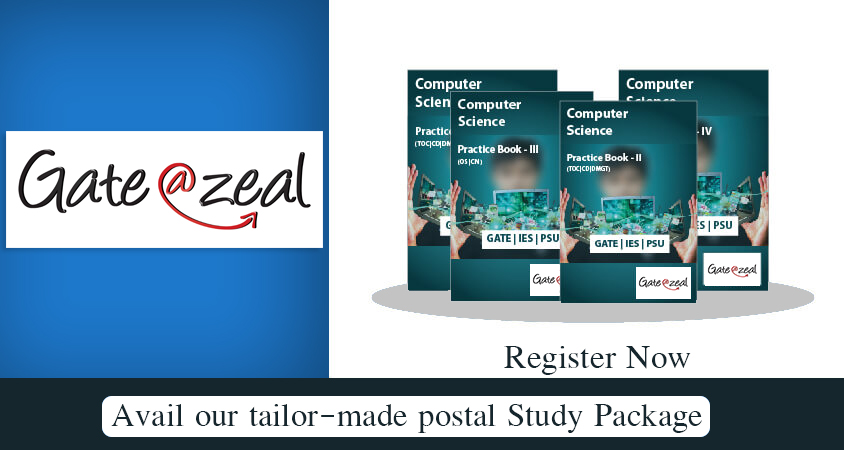
What is the gate syllabus for computer science in 2022
- Gate at Zeal
- 15-04-2021
The results of the 2021 GATE exam were recently announced, and IITs and the Indian Institute of Science Bangalore immediately released the expected schedule for GATE 2022, making it easier for candidates to prepare for the exam.
As per the IIT Kharagpur's released information about GATE 2022 examination –
- The application form for GATE 2022 will be available in the first week of September 2021, with the deadline for submission in the fourth week of September 2021.
- In the second week of September 2021, the application error window will open, and the deadline for late applications with a late fee will be in the first week of October 2021.
- The exam will be held in the first and second weeks of February 2022, and the admit card will be given in the first week of January 2022. The answer keys will be issued in the third week of February 2022, the results in the third week of March 2022, and the GATE 2022 scorecard in the last week of March 2022.
It is critical for every GATE exam applicant to be aware of all of this information, as well as the GATE exam syllabus since no examination can be prepared without one. The GATE exam is held for engineering students in all fields, and there is a different syllabus for each discipline. Today, we will discuss the GATE syllabus for computer science.
The subjects and sub-topics of every topic of the GATE 2022 Computer Science and Information Technology syllabus are mentioned below –
Subjects –
- General Aptitude
- Engineering Mathematics
- Digital Logic
- Computer Organization and Architecture
- Programming and Data Structures
- Algorithms
- Theory of Computation
- Compiler Design
- Operating System
- Databases
- Computer Networks
Detailed Syllabus –
General Aptitude
General Aptitude is one of the most critical topics in GATE CS, and it is worth fifteen points in each year's GATE test. These 15 numbers are divided into five questions worth one point each and five questions worth two marks.
Topics under General Aptitude –
This subject of the GATE computer science exam is mainly categorized into two parts: verbal ability and numerical ability, and sub-topics under this are -
Verbal ability –
- Sentence completion
- English grammar
- Verbal analogies
- Commands
- Word groups
- Verbal deduction
- Critical reasoning
Numerical ability –
- Numerical calculation
- Data interpretation
- Numerical reasoning
Engineering mathematics –
Topic and sub-topics under engineering mathematics are given as follows –
Linear Algebra
- LU decomposition
- Matrices
- Systems of linear equations
- Determinants
- Eigenvectors.
Probability:
- Bayes theorem
- Random variables
- Uniform, normal, exponential, Poisson, and binomial distributions
- Standard deviation
- Conditional probability
- Mean median, mode.
Calculus:
- Differentiability
- Limits, and continuity
- Integration
- Maxima and minima
- Mean value theorem.
Discrete Mathematics:
- Combinatory: generating functions, counting, recurrence relations.
- First-order logic and Propositional.
- Groups, sets, lattices, functions, partial orders, and relations.
- Graphs: coloring, matching, connectivity.
Algorithms –
This subject includes –
- Searching, sorting, hashing.
- Asymptotic worst-case time and space complexity.
- Algorithm design techniques: greedy, dynamic programming, and divide‐and‐conquer.
- Graph traversals, minimum spanning trees, shortest paths
Operating systems –
GATE CS exam’s important topics of operating system subject are –
- Memory management and virtual memory
- Concurrency and synchronization and Deadlock
- CPU scheduling
- Scheduling Algorithms
- Semaphores
- Paging and Page replacement algorithms
- Processes, threads, interposes communication
- File systems
Digital Logic –
Topics under this subject are -
- Boolean algebra
- Combinational and sequential circuits
- Minimization
- Number representations and computer arithmetic (fixed and floating-point).
Database Management Systems –
Topics under this subject are -
- ER‐model.
- Relational model: relational algebra, tuple calculus, SQL.
- Integrity constraints, normal forms.
- File organization, indexing.
- Transactions and concurrency control.
Compiler Design –
Topics under this subject are -
- Lexical analysis
- Parsing
- Syntax-directed translation
- Runtime environments.
- Intermediate code generation.
- Local optimization, Data flow analyses: constant propagation, liveness analysis, common subexpression elimination.
Theory of Computation –
Topics under this subject are -
- Regular expressions and finite automata
- Context-free grammars and push-down automata.
- Regular and context-free languages, pumping lemma.
- Turing machines and undecidability.
Computer Organization and Architecture–
Topics under this subject are -
- Machine instructions and addressing modes.
- ALU, data‐path, and control unit.
- Instruction pipelining, pipeline hazards.
- Memory hierarchy: cache, main memory, and secondary storage; I/O interface (interrupt and DMA mode).
Programming and Data Structures –
Topics under this subject are -
- Programming in C.
- Recursion.
- Arrays, stacks, queues, linked lists, trees, binary search trees, binary heaps, graphs.
Computer Networks –
Topics under this subject are –
- Concept of layering: OSI and TCP/IP Protocol Stacks; Basics of the packet, circuit, and virtual circuit-switching;
- Datalink layer: framing, error detection,
- Medium Access Control
- Ethernet bridging
- Routing protocols: shortest path, flooding, distance vector, and link-state routing
- Fragmentation and IP addressing,
- IPv4
- CIDR notation
- Basics of IP support protocols (ARP, DHCP, ICMP)
- Network Address Translation (NAT)
- Transport layer: flow control and congestion control, UDP, TCP, sockets
- Application layer protocols: DNS, SMTP, HTTP, FTP, Email.
Guys, we've provided you with the GATE syllabus for computer science, so get started right away and make your future glorious by clearing the GATE CS exam. All the best to you all.

